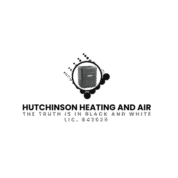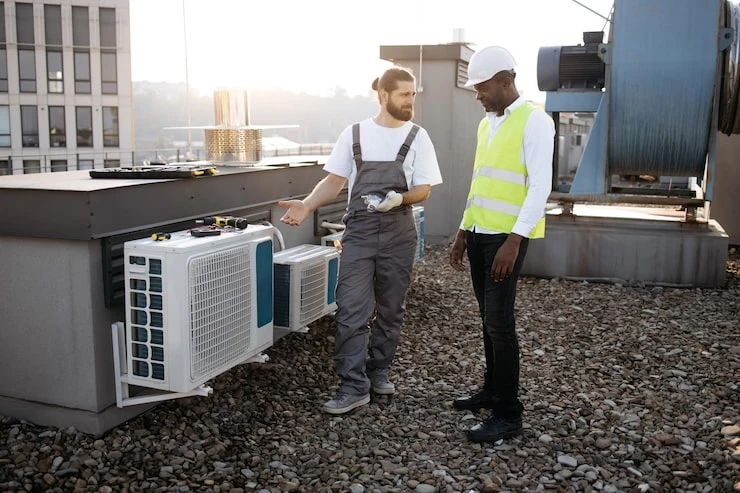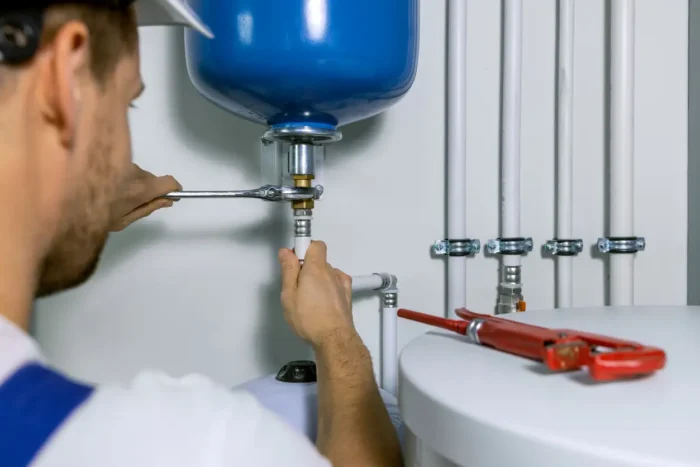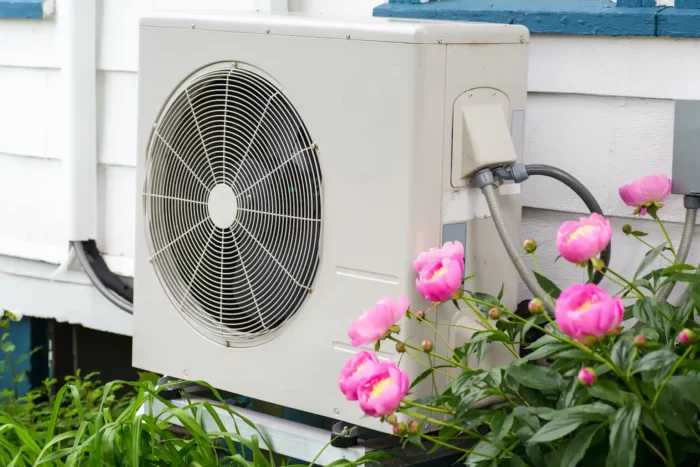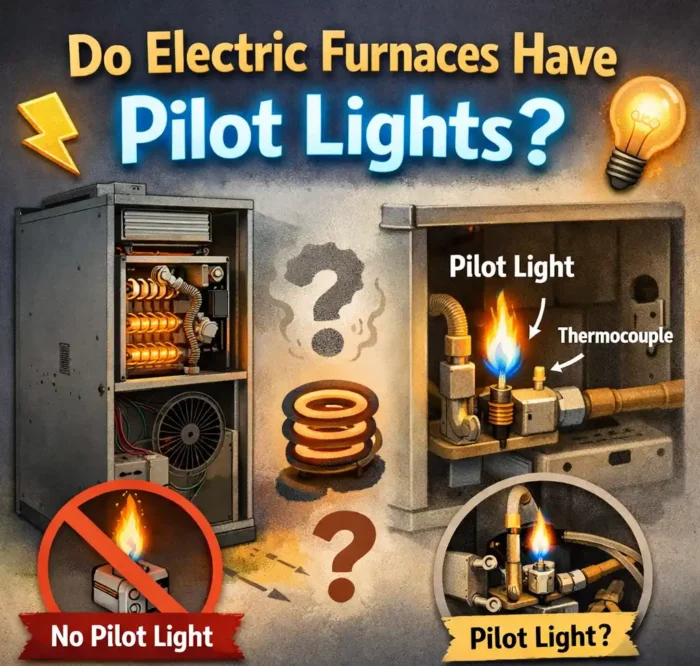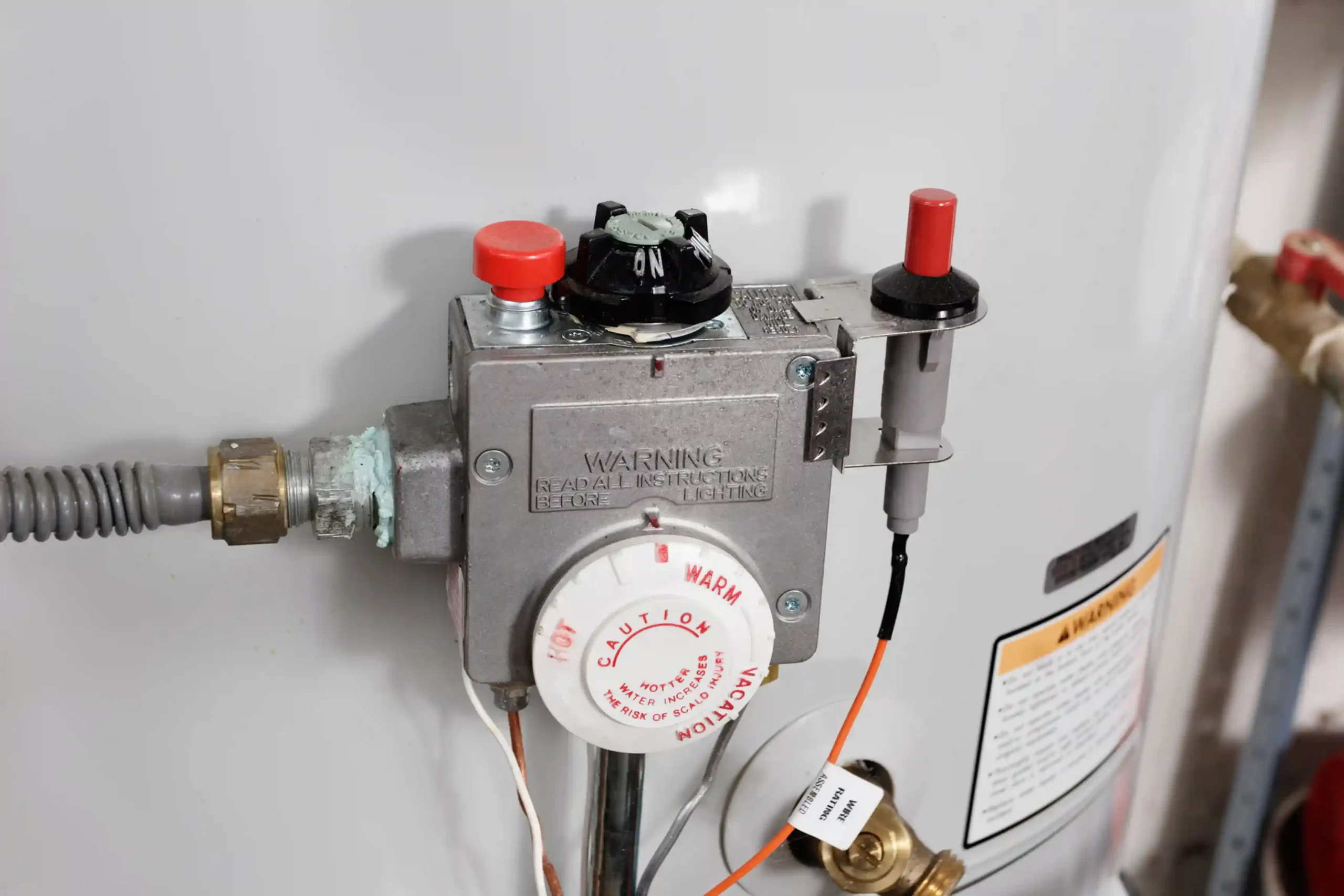As HVAC systems are becoming popular all over the world and provide a lot of benefits and comfort to homeowners, it is a major investing decision and you have to be concerned about different factors. If you are facing issues with your current HVAC system like system outdated, inefficiency and frequent breakdowns it is important to make the right decision for your home.
So in this guide you will get to know about how much does a new HVAC system cost? Influencing factors: what factors you have to consider when installing or upgrading your system.
At Hutchinson heating and air we make sure that people will make informed decisions related to their HVAC system and they will get long term benefits from their smart investment.
Table of Contents
ToggleAverage new HVAC system cost
The average cost of a new HVAC system ranges from $7000 to $15000 including equipment and installation costs. However its not a constant price it varies depending upon different factors like home size, type of HVAC system and advanced or more efficient systems.That’s why many homeowners get confused due to variation in prices like in smaller size homes will have less cost on their HVAC system but for larger homes the price may be exceed more.
Overall the total HVAC system costs demons upon installation complexity, efficiency ratings and size of home not only the unit itself.
What’s Actually Inside Your HVAC System?
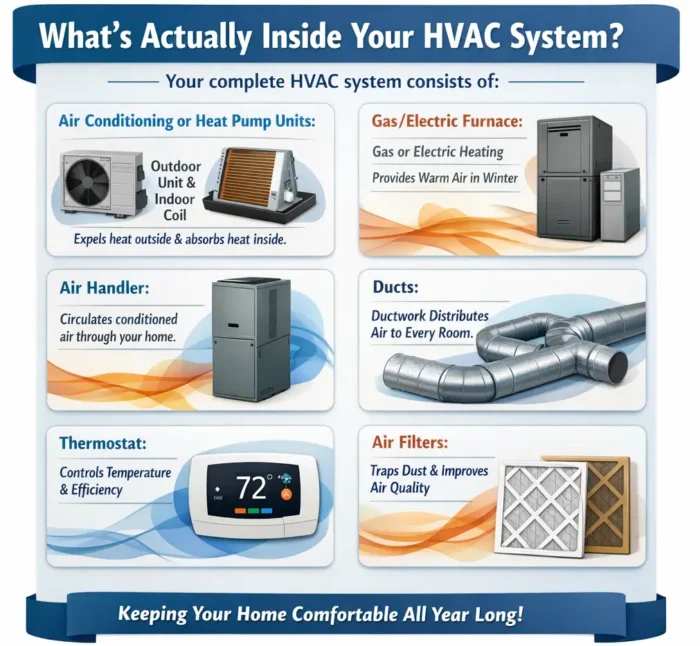
Before we talk about price, let’s clarify what you are paying for. Many homeowners believe that an HVAC system is simply a furnace and air conditioning unit, but there is a lot more in operation to keep your home comfortable.
Your complete HVAC system consists of:
Air Conditioning or Heat Pump Units: Every air conditioning, or heat pump unit is made of two components – an outdoor unit that expels heat, and an indoor unit that contains the coil that absorbs heat and humidity. Heat pumps simply reverse the processes of absorbing heat from your home to provide warm indoor air in the winter.
Gas/Electric Furnace: Almost all homes will either have a gas or electric furnace. The fuel source that you are using will dramatically impact the costs of both installing the equipment and operating it in the future. Homes located in the Southern states will almost always have electric heating with their heat pumps, while most northern states have access to natural gas, which is on average 40-50% less expensive for heating.
Air Handler: Throughout the year, the air handler moves conditioned air into all rooms in your home, while controlling the airflow through your ductwork while heating and cooling the conditioned air.
Ducts: This is the circulatory system of your home. Properly sealed and sized ductwork eliminates any wasted heat or conditioned air and helps even out the temperatures of your home.
Thermostat: This is the control center for your HVAC System. The thermostat can often integrate with smart home technology to manage efficiency and saving energy.
Air Filters: These filters help to protect your equipment and maintain your indoor air quality. If your filters are dirty, the air conditioning or furnace will struggle to condition the air, and cause the energy bills to increase by 15-20%.
Understanding HVAC System Types
Different systems serve different needs. The right choice depends on your climate, home size, and budget. Here’s what you need to know about each type.
Central Air and Furnace Combo
This is the most common setup in American homes. You get separate units for heating and cooling. A gas or electric furnace handles winter heating. An air conditioner takes care of summer cooling. This combination typically costs $8,000 to $15,000 installed.
Heat Pump Systems
Heat pumps do both jobs with one unit. They move heat instead of creating it. This makes them very efficient. Air source heat pumps work well in mild climates. They cost $6,000 to $12,000 for most homes. Geothermal heat pumps use underground temperatures. They’re the most efficient but also the most expensive at $20,000 or more.
Ductless Mini-Splits
These systems don’t need ductwork. They’re perfect for older homes or room additions. Each indoor unit connects to an outdoor compressor. You can control each room separately. Mini-splits cost $3,000 to $10,000 depending on how many rooms you want to cover.
Packaged Systems
All components sit in one cabinet outside. These work great for homes without indoor space for equipment. They’re common in commercial buildings but less popular in homes. Expect to pay $6,000 to $14,000 installed.
Factors that affects HVAC system cost
Here are some main factors that depend upon the final price of your HVAC system.
HVAC system type
HVAC systems include different systems which have different prices. It includes:
- Air conditioners
- Furnaces
- Heat pumps
- Ductworks
So these are included in HVAC system and impacts the overall HVAC system cost depending upon brand, performance and technology,
Size of home and layout
So a large size home requires a heavy system with more capacity which increases labour and installation costs. If you are planning to install a new system and your home needs some upgrading it also affects the pricing and your budget.
Ductwork condition
Ductwork is an important component of your system as it maintains the proper airflow for better performance and comfort. If your ductwork is damaged, too old or needs proper replacement it will come under your HVAC installation cost.
Energy efficiency ratings
There are some systems which have higher AFUE and SEER ratings have higher upfront cost as compared to others. But also these systems are very beneficial as it reduces the energy bills with time and proves to be a worthwhile investment.
You may read How Much Does It Cost to Replace AC & Furnace?
HVAC replacement cost vs installation
There is a huge difference between HVAC replacement and installation process. HVAC replacement cost is normally less than installing a new system in your home. The replacement cost is almost between $6500 to $12000 if other equipment are available like ductworks and electrical components are in place.
But if there is some requirement in fixing the ductwork or other components then the HVAC replacement cost will also increase. So before installation you have to check out your system from professionals and then take steps accordingly.
2026 HVAC Price Guide: What to Expect Locally
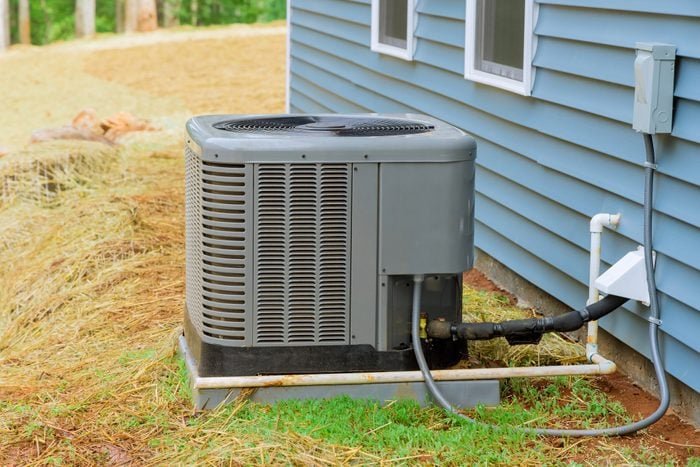
If you’ve been shopping around, you’ve likely noticed that prices look a bit different this year. Between new eco-friendly refrigerant laws and California’s updated efficiency standards, 2026 has brought some changes to the industry.
Here is a realistic look at what our neighbors in Temecula and Murrieta are actually paying for a professional installation.
The “Just Cooling” Update (AC Only) | $4,500 – $8,500
If your furnace is still running like a champ but your AC has finally given up the ghost, you can replace just the cooling side.
- What you get: A new outdoor unit and indoor coil.
- The reality: It’s a great way to save money upfront, but keep in mind that mixing old and new technology can sometimes limit your overall efficiency.
The “Neighborhood Favorite” (Full AC + Furnace) | $10,000 – $15,000
This is the “bread and butter” system for most 3- or 4-bedroom homes in our area.
- What you get: A solid, reliable 15-16 SEER2 air conditioner and a matching gas furnace.
- Why it’s popular: It’s the perfect middle ground. You get modern reliability and a full warranty without the “luxury” price tag of high-end tech.
The “Forever Home” System (Ultra-High Efficiency) | $15,000 – $22,000+
If this is the home you plan to retire in, this system is a game-changer.
- The Tech: These use “Variable Speed” motors. Instead of just blowing “High” or “Off,” they adjust in tiny increments to keep the temperature perfectly steady.
- The Perk: They are incredibly quiet—no more turning up the TV when the AC kicks on. They also do a much better job of cooling those stubborn hot upstairs rooms.
Modern Heat Pumps | $8,000 – $18,000
We’re seeing a huge shift toward these in Riverside County. They run entirely on electricity and handle both heating and cooling.
- The Big Plus: Because they are so eco-friendly, there are often massive tax credits (up to $2,000) and local rebates that can significantly lower your “out-of-door” price.
Ductless Mini-Splits | $5,000 – $15,000+
These are the perfect fix for garage conversions, home offices, or those older Temecula ranch homes where adding ductwork is a nightmare.
- Custom Comfort: You can set the temperature in each room individually. If you aren’t using the guest room, you aren’t paying to cool it.
A Quick Pro-Tip: The “Package” Discount
Whenever possible, try to replace the furnace and the AC at the same time. Not only does it save you about $1,500 in labor costs, but it ensures the two units “talk” to each other correctly. It’s like putting a new engine in a car—you wouldn’t want to use a 20-year-old transmission if you could help it!
How Much for a 3,000 Square Foot Home?
A 3,000 square foot home needs special attention. You’re looking at a 4 to 5-ton system for proper cooling and heating. Most homeowners in this size range spend $14,000 to $20,000.
Your base system includes a high-efficiency air conditioner and gas furnace. This setup handles most climate zones well. If you choose a heat pump instead, expect similar pricing for mid-efficiency models.
Premium features add cost quickly. A variable-speed compressor adds $2,000 to $3,000. Smart zoning systems cost $1,500 to $3,000 extra. These upgrades improve comfort and efficiency. They make sense if you plan to stay in your home for years.
Breaking Down Complete Installation Costs
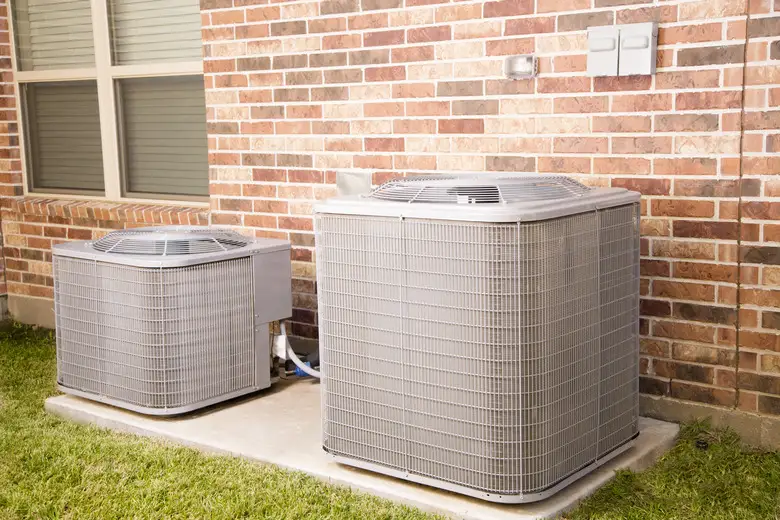
Equipment represents only 50-60% of your total investment. Here’s where the rest goes:
Professional Installation: $1,500 – $4,000
Skilled technicians perform load calculations, precise refrigerant charging, airflow balancing, electrical connections, and system testing. Installation quality determines your system’s long-term performance—never sacrifice it to save money.
Ductwork Modifications: $400 – $5,000
- Basic duct sealing: $400-$1,200
- Adding new vents: $150-$400 per vent
- Partial replacement: $1,500-$3,500
- Complete system replacement: $3,000-$12,000
Properly sized and sealed ductwork improves efficiency by 20-40%.
Permits and Inspections: $150 – $800
Required inspections ensure safe installation and valid manufacturer warranties. Your contractor handles this paperwork.
Thermostat Upgrades: $150 – $600
Smart thermostats learn your preferences, adjust automatically, and reduce energy consumption by 10-23% according to EPA studies. Most pay for themselves within 2-3 years.
Indoor Air Quality Accessories
Whole-home humidifiers: $600-$2,500 (combat dry winter air)
Whole-home dehumidifiers: $2,500-$4,500 (prevent mold and moisture damage)
Air purification systems: $800-$2,000 (eliminate viruses and allergens)
Zoning systems: $1,800-$4,500 (independent temperature control by area)
When Should You Replace Your HVAC System?
Knowing when to replace saves you money. Here are clear signs it’s time for a new system.
Age is a Major Factor
Most systems last 15 to 20 years with good care. If yours is older than 15 years, start planning. Repairs become more frequent and expensive. New systems are also much more efficient.
Rising Energy Bills
Your heating and cooling costs should stay consistent. A sudden jump means your system is losing efficiency. If your bills have climbed 20% or more, investigate replacement.
Frequent Repairs
The $5,000 rule helps here. Add up all repairs over the past two years. If repairs equal or exceed half the cost of a new system, replace it. Also consider the hot water tank anode rod, water heater anode rod, and purpose of anode rod maintenance for your water heating needs. The gas water heater anode rod should be checked regularly to extend equipment life.
Uneven Temperatures
Some rooms too hot while others stay cold? This signals declining performance. Your system can’t distribute air properly anymore. Repairs might help temporarily, but replacement solves the problem permanently.
Strange Noises
Grinding, squealing, or banging sounds mean mechanical problems. These often indicate major component failure. The repair cost usually makes replacement smarter.
Additional costs in HVAC system installation
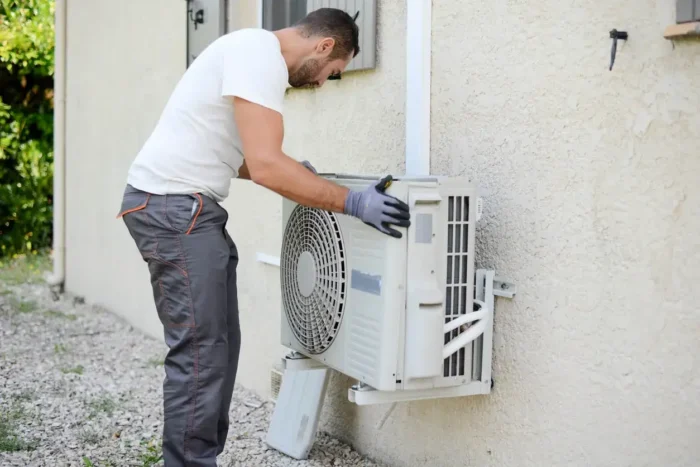
As this installation is complex so homeowners have to consider some other factors beyond the system and labour which includes:
- Some thermostat upgrades
- Permits and inspections
- Other maintenance plans
However these components may increase your total investment and budget but also deliver comfort and long term benefits to you.
Making the Right Investment Decision
How much does a new HVAC system cost? The answer depends on your specific needs. Most homeowners invest $8,000 to $18,000 for a quality system that lasts 15 to 20 years.
Focus on Total Cost of Ownership
The cheapest system often costs more long-term. Higher efficiency models save $500 to $1,000 per year on energy bills. That’s $10,000 to $20,000 in savings over the system’s life. Spending an extra $3,000 upfront makes financial sense.
Take Advantage of Incentives
Federal tax credits cover 30% of qualifying equipment costs. Many utilities offer rebates of $500 to $2,000. Manufacturers run seasonal promotions. Ask your contractor about all available incentives. These can reduce your out-of-pocket cost by $2,000 to $5,000.
Consider Financing Options
Most HVAC contractors offer financing. You can spread payments over 3 to 10 years. Low-interest or zero-interest promotions are common. Monthly payments of $150 to $300 make replacement affordable without touching savings.
Plan for Off-Season Installation
Spring and fall offer the best deals. Contractors are less busy then. You might save 10% to 15% on labor costs. You’ll also get faster service and more attention to detail.
Benefits of investing in new HVAC system
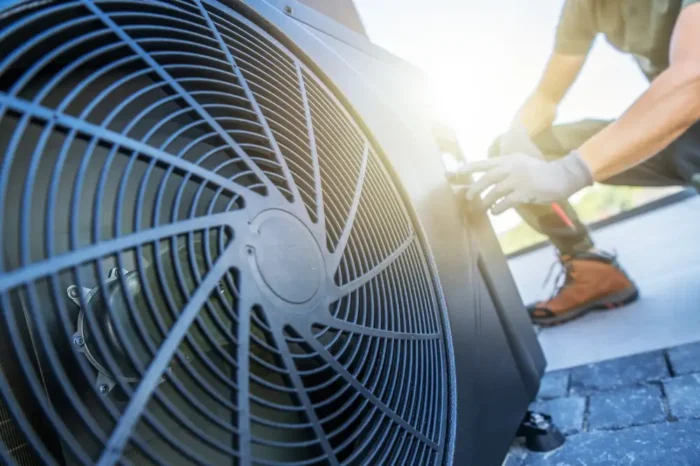
HVAC systems are very beneficial so it should be a smart and long term investment as it leads to:
- Better indoor quality
- Consistent comfort
- Fewer repairs and breakdowns
- Lower utility bills
So the answer to how much does a new HVAC system cost is long term comfort and peace of mind without any minor or major issues.
How to save money on a new HVAC system
You can smartly make your budget friendly through some ways like:
- You can take advantage from rebates and tax credits
- Schedule installation during peak off seasons
- Choosing the system according to home size
- Choose expertise team like Hutchinson heating and air
We make sure to deal with you honestly and don’t over charge you. Our team assures you about the best installation and performance of the system.
How to Choose the Right HVAC Contractor
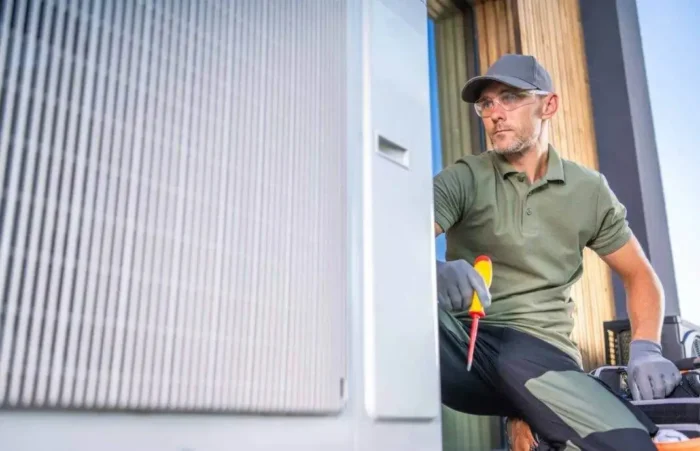
Not all contractors deliver equal value. Ask these essential questions:
Do you perform Manual J load calculations? Proper sizing requires detailed calculations, not just square footage.
What’s included in your installation? Get itemized quotes covering permits, disposal, testing, and warranty registration.
How will you test the system? Professional installers measure airflow, temperature, and refrigerant charge for optimal performance.
Red flags to avoid: Quotes 30%+ below others, pressure tactics, no license verification, cash-only requirements, or vague quotes without equipment models.
Labor costs represent 40-50% of your total investment. Quality installation protects even the best equipment, while poor installation compromises everything.
Conclusion
When you’re planning for a new HVAC system, understanding what drives the cost—like system size, energy efficiency, and installation complexity—helps you make smarter financial decisions. Whether you’re adding central air, replacing an old unit, or outfitting a larger home, knowing these factors puts you in control.
At Hutchinson Heating and Air, we specialize in professional HVAC installation in Temecula, offering transparent pricing and expert guidance. Our experienced team will help you find the perfect system for your home and budget, then handle every detail of the installation with care.
Ready for a more comfortable home? Contact Hutchinson Heating and Air today for a free estimate and see how affordable quality comfort can be.
Ready to upgrade your HVAC system?
Contact us today for a free consultation and expert HVAC installation services tailored to your home and budget!
Frequently Asked Questions (FAQs)
How much does it cost to install a new HVAC system?
The average cost for installing a new HVAC system typically ranges from $4,000 to $12,000, depending on factors like home size, system type, and installation complexity.
What is the cost of HVAC replacement?
HVAC replacement costs typically fall between $4,000 and $12,000, influenced by the type of system, home size, and location.
How much does a new HVAC system cost for a 3,000 sq ft house?
Expect to pay between $7,500 and $12,000 for a new HVAC system in a 3,000 sq ft house due to the need for a larger unit and more complex installation.
What are the costs involved in HVAC installation?
HVAC installation costs usually include labor, equipment, and ductwork, typically ranging from $3,000 to $6,000, depending on the complexity of the job.
How much does it cost to install central air?
The cost to install central air generally ranges from $3,500 to $6,000, depending on factors such as home size and unit efficiency.
What is the cost of replacing a furnace and AC unit?
The cost of replacing furnace and ac unit can range from $5,000 to $8,000 for a basic unit, with high-efficiency models pushing the cost to $8,000 to $15,000.
